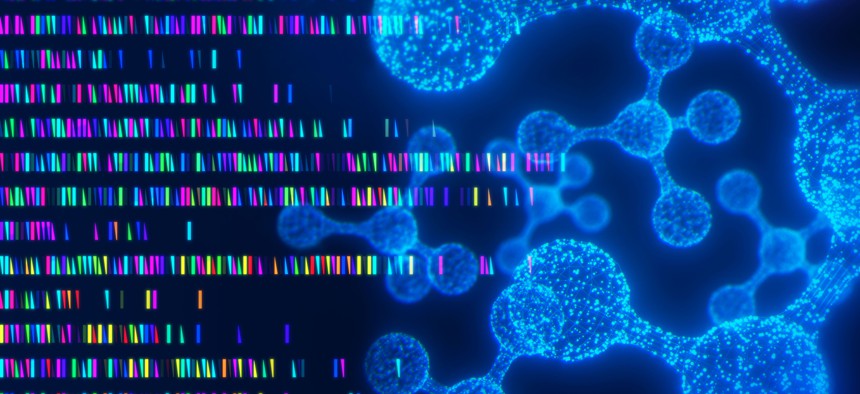Leidos fights for another chance at $89B national biomedical lab contract

Gettyimages.com/Yuichiro Chino
The company has supported the only federally-funded research and development center focused on medical research for 17 years, but a challenger has wrestled the contract away.
Leidos is battling for a second chance at keeping a long-term contract worth up to $89 billion over 25 years to support the National Cancer Center.
The contract dates to the old Science Applications International Corp., which won the latest version of contract in 2008 to manage the Frederick National Laboratory for Cancer Research. Leidos inherited the contract after the 2013 split of "Old SAIC." Counting the SAIC years, the company has worked with the lab for over 25 years.
Since 2008, the National Institutes of Health has obligated approximately $6 billion in task orders to Leidos.
NIH awarded the recompete contract in January to the Alliance for Advancing Biomedical Research, a group created by the University of California system. AABR was the only other bidder besides Leidos, according to Federal Procurement Data System records.
Leidos is challenging how the agency conducted discussions and evaluated technical proposals, cost and past performance. Leidos is also arguing that NIH's best-value tradeoff decision was flawed.
"Leidos has concerns with several aspects of the acquisition process and filed a protest with the GAO to address them," a spokesman said. "We find it surprising that at a time when the government is focused on fiscal responsibility and advancing cancer research, a significantly higher-cost bidder was selected for this contract. We respect the GAO process and look forward to a fair and informed resolution of the protest."
The Government Accountability Office is due to make a decision by July 3.
The Frederick lab is a federally-funded research and development center and the only one focused on medical research.
Research at the Frederick lab involves cancer, AIDS/HIV, infectious diseases, biomedical imaging, data science, genetics, pathology and virology.
Work there supports the National Cancer Institute, the National Institute of Allergy and Infectious Diseases, and other parts of NIH.


